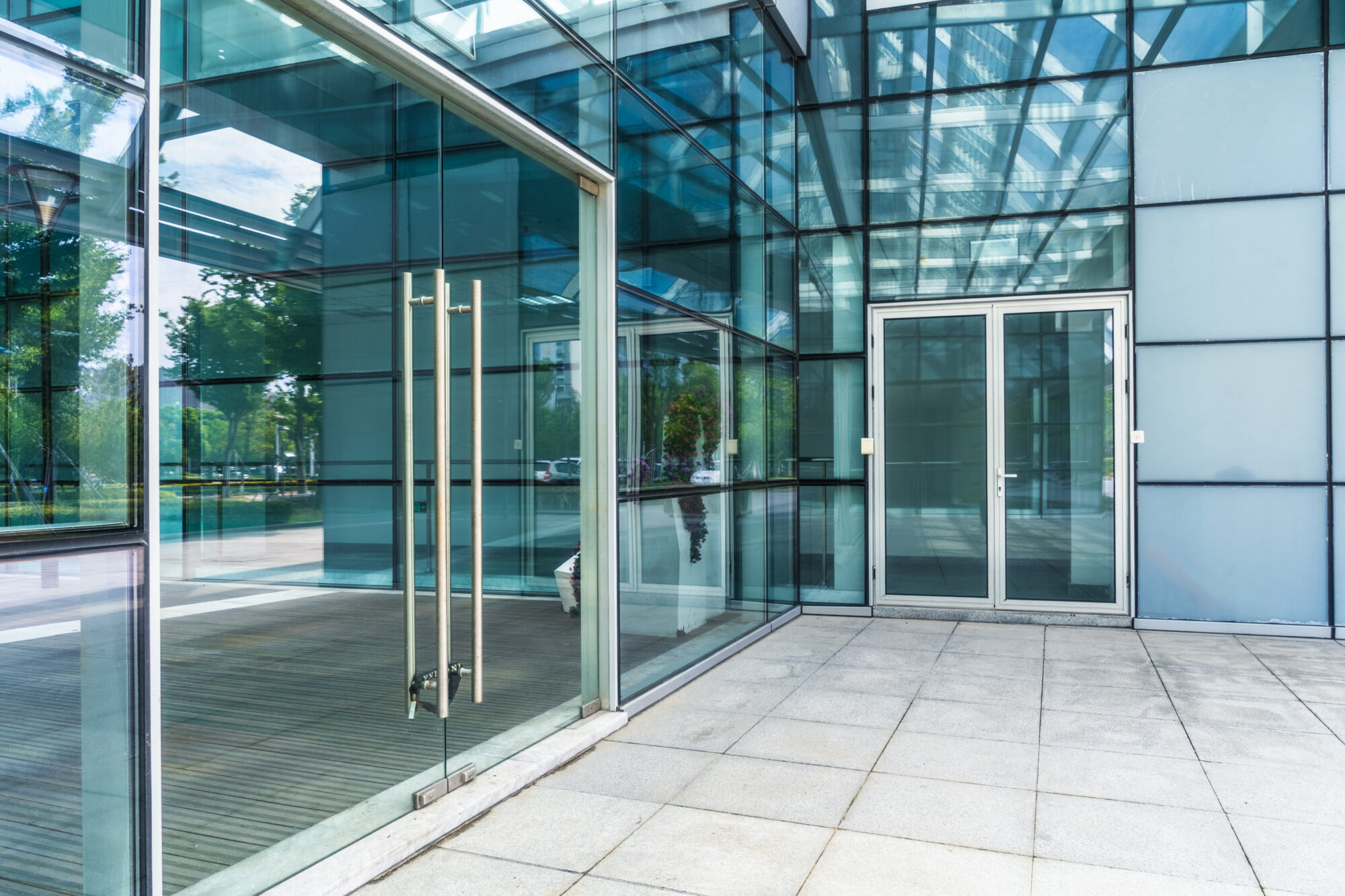Commercial door locks have changed a lot over the last decade. Due to the increased use of electronic access control systems, the way locks secure access points in enterprises, commercial real estate, schools and more has transformed. Now, IT and security teams can better integrate their locks with the rest of their security system using the cloud.
But with so many choices in commercial door locks, choosing the right solution isn’t always easy. In this guide, you’ll learn about commercial locks, how they work and which is right for you.
This article covers:
- What is a commercial door lock?
- What types of commercial door locks exist?
- How are door locks graded?
- How you can choose the right one.
What is a commercial door lock?
Let’s start with the basics.
A commercial door lock is a high-grade, security device that restricts people from entering an area, such as offices, retail spaces, hospitals and other business establishments. But before you run to Home Depot and buy any old Master lock, it’s important to know what you’re looking for.
What types of commercial door locks exist?
Commerical door locks are built to withstand heavy use, potential break-in attempts and meet specific building and fire codes. IT and security teams often choose commercial door locks based on the level of security required, ease of use and available features that can be tailored to their business needs. Below are a few options of common commercial door locks.
- Wireless Locks
Wireless door locks are locking devices that operate (lock and unlock the door) without the need for electrical wiring. These locks are powered by an internal battery and connect wirelessly to your access control system through the internet. Businesses can easily integrate wireless locks into existing access control systems and facilitate keyless entry for users.
- Mortise Locks
Mortise locksets are widely used in commercial buildings because they are highly durable and resistant to forced entry. Since mortise lock systems come with a strike plate along with a deadbolt located inside the body, they are difficult to breach without a key.
- Deadbolt Locks
A deadbolt lock uses a bolt without the spring. These single cylinder deadbolts are easy to install on doors and provide better security for your building. They can be installed on external doors in conjunction with other commercial door lock systems to provide an extra layer of protection. Today, many types of commercial magnetic door lock systems come with keyless deadbolt options that make them compatible with modern-day access control systems.
- Smart Locks
Commercial electronic locks, or smart locks, help tie the building together by integrating with your access control system. These advanced locks include wireless locks but can be wired as well. Smart locks are compatible with key cards, mobile keys and proximity cards.
Grades of Commercial Door Locks
Though commercial grade door locks look similar to traditional locksets that are used in homes, they differ in terms of strength, functionality and endurance. Not all commercial locks are suitable for all kinds of doors. Unless you understand the grades of commercial locks available in the market, you may not know what type of lock you should choose for a particular door.
- Grade 3: Grade 3 locks are made with less durable material and therefore are easier to breach. Available in the form of lever locks and cylinder locks, these are suitable for interior doors in residential homes, offices and other commercial buildings.
- Grade 2: Grade 2 locks are stronger than Grade 3. Made with more durable material, these locks are often used for areas that need high security and facilitate more traffic. It is ideal to use Grade 2 locks for lobbies.
- Grade 1: Grade 1 locks are made with durable stainless steel and hence provide the greatest security to the building. These heavy-duty fire rated door locks are suitable for a storefront, museum, bank and storeroom. With satin chrome or satin nickel finishing, they can also provide an aesthetic look to doors.
The grade of commercial door hardware is determined by looking at the type of material used for components such as strike plates, door hinges, door levers, deadbolts, door closers, lock cylinders, exit devices, door handles and doorknobs.
Security professionals should first assess their security requirements and then decide on the grade of the commercial lock they want to purchase.
| Commercial Access Control | Commercial Smart Door Lock | |
| Place of use | An access control system is highly suitable for entrance gates, front doors and high-risk doors of the property. You can also add interior doors to the access control network for enhanced security and streamlined operations. | It is suitable for interior doors where the risk of a breach is very low. |
| Suitability | It is perfect for commercial buildings with multiple entry points and hundreds of users. Small-scale enterprises can also install access control systems to enhance building security. | Smart locks are suitable for small offices with one or two doors. |
| Remote management | Many cloud-based access control solutions provide a centralized dashboard that can be accessed from anywhere, on any device, at any time. Remote access is the biggest advantage of the access control system. | Since smart locks are stand-alone locking devices, you can lock or unlock doors from a remote location through a mobile app. However, managing multiple smart locks can be cumbersome without an access control network. |
How Genea Security Works for You
Commercial access control helps enterprises institute remote access, automated provisioning, real-time reporting and enhanced security.
Genea integrates with non-proprietary hardware, giving you the freedom to switch software providers at any time. Through our API integrations, Genea Security can be easily set up with ASSA Abloy IP-enabled PoE (Power over Ethernet) and Intelligent WiFi. IT and security teams can connect their ASSA ABLOY IP-enabled Wi-Fi locks to Genea Security without running a single cable. Whether equipping one door or 100, the cloud-based solution helps hospitals, schools, enterprises, and more connect their security, wirelessly..
Genea offers a range of access control solutions that help commercial real estate properties and enterprises manage access control activities at multiple locations, meet compliance and automate manual processes.
- Cloud-based access control: Genea offers a cloud-based access control solution that enables enterprises to monitor access activities across multiple locations from anywhere.
- Mobile access control: In addition to swipe cards, RFID cards, physical key fobs and biometrics, Genea is compatible with mobile credentials. It allows your employees to use their mobile phones to unlock doors.
- Touchless visitor management: Genea’s touchless visitor management software enables commercial real estate properties to streamline visitor access to the building.
Book a demo of Genea Security to learn about how it can enhance the security of your commercial real estate properties.






